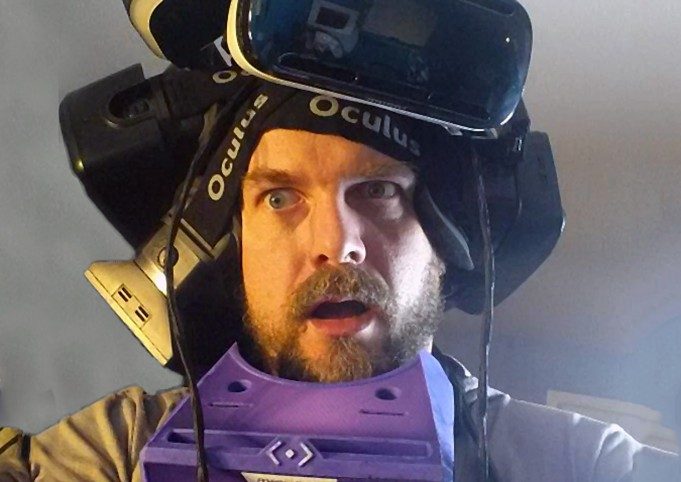Responding to criticisms about the potential for Oculus Rift game exclusivity, Oculus founder Palmer Luckey reaffirms that the company is interested in working with other hardware vendors through the Oculus platform.
While the Oculus Rift may be the first desktop VR headset to support games and experience sold through the company’s storefront, it may not be the only one.
“If customers buy a game from us, I don’t care if they mod it to run on whatever they want,” Luckey writes in response to a user of Reddit criticizing the company’s choice to create games exclusive to the Oculus platform. “The software we create through Oculus Studios (using a mix of internal and external developers) are exclusive to the Oculus platform, not the Rift itself.”

Luckey reaffirms that last piece means that VR experience sold through the Oculus store could one day support desktop VR headsets other than the Rift, but cautions that making that happen is a challenging task.
“The issue is people who expect us to officially support all headsets on a platform level with some kind of universal Oculus SDK, which is not going to happen anytime soon,” writes Luckey. “We do want to work with other hardware vendors, but not at the expense of our own launch, and certainly not in a way that leads to developing for the lowest common denominator – there are a lot of shitty headsets coming, a handful of good ones, and a handful that may never even hit the market. Keep in mind that support for the good ones requires cooperation from both parties, which is sometimes impossible for reasons outside our control.”
Luckey defends the company’s rhetoric against critics, saying that his comments are “exactly what we have been saying for years,” citing Oculus CEO Brendan Iribe saying back in 2014, “We are openly talking to any kind of partner that wants to jump into VR, and there’s a lot of interest right now.”
Perhaps Oculus’ biggest competitor, Valve, is pushing ahead with efforts to support multiple headsets, including the Oculus Rift, with their ‘OpenVR’ SDK.







